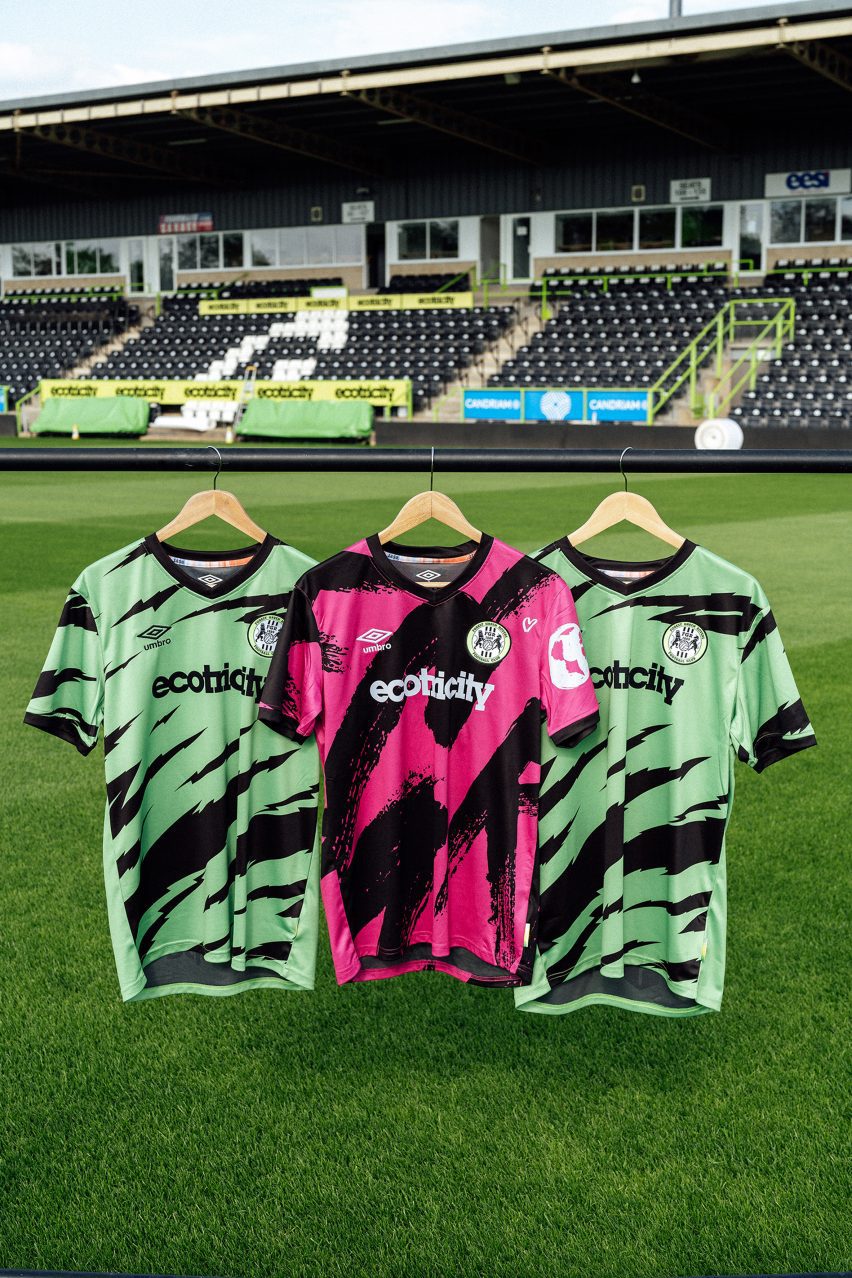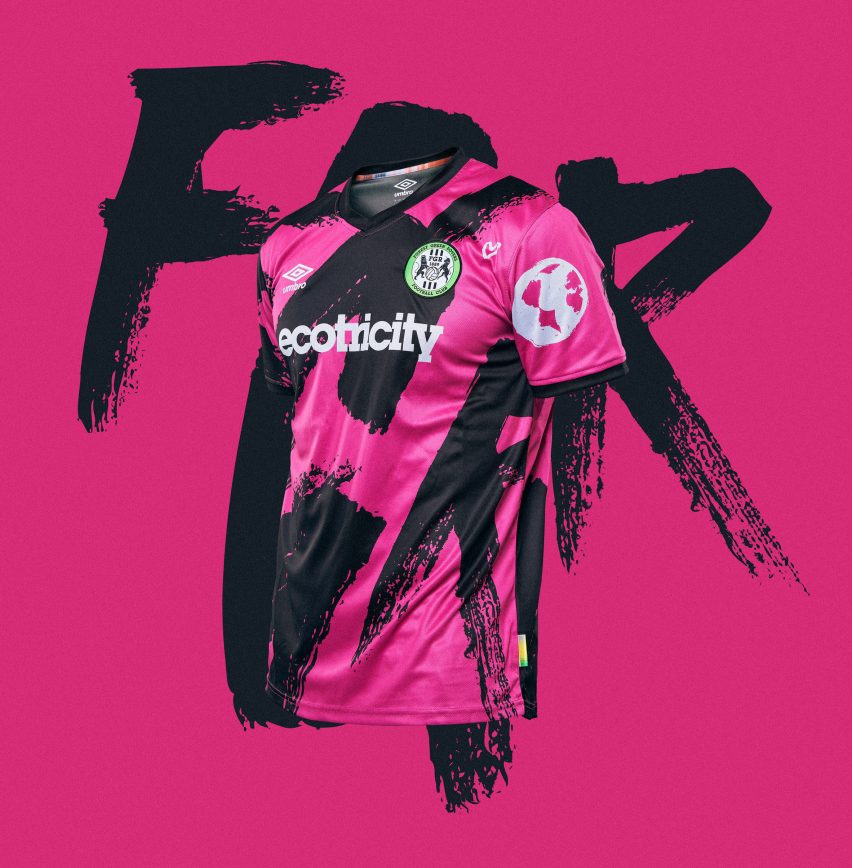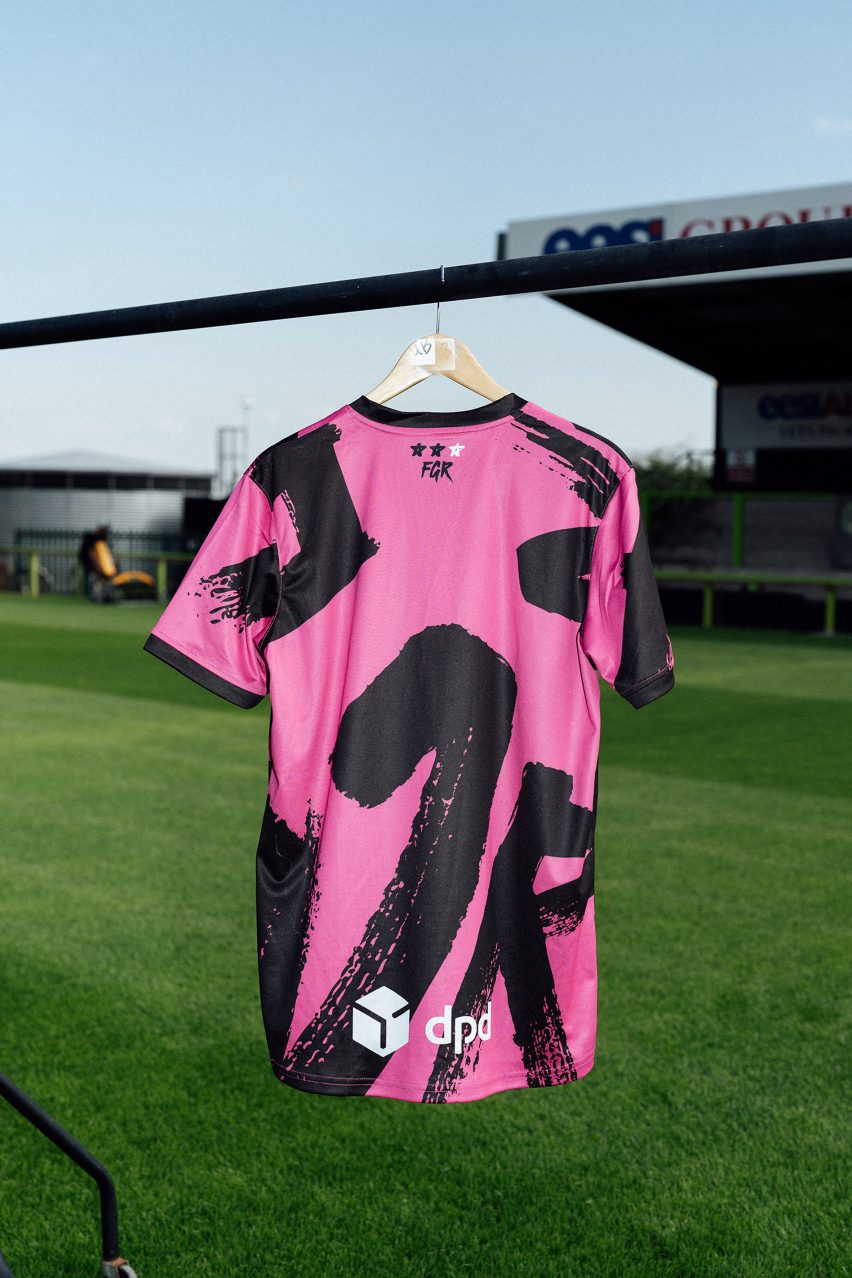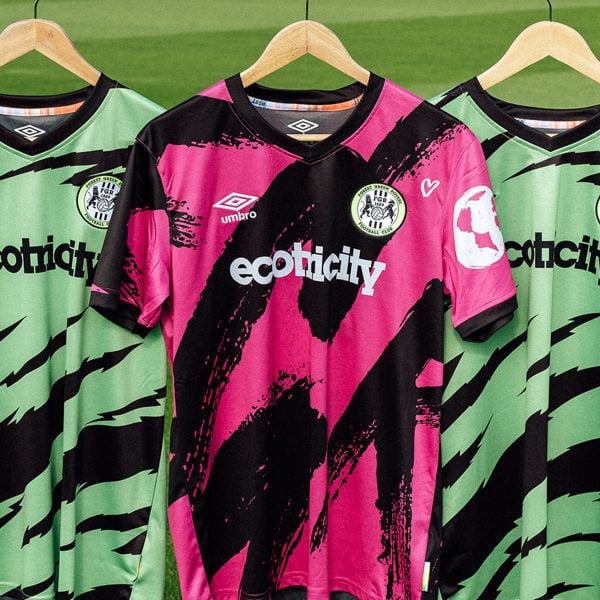Gloucestershire-based football club Forest Green Rovers has unveiled its new away kit for the 2024/25 season, featuring details that draw attention to the effects of climate change.
Manufactured by sports brand Umbro using a bamboo blend fabric, the shirts are available in a pink colourway for away games and green for training, united by a pattern of brushstroke-like black lines.
Both versions feature a striped band hidden in the neck lining and a tab on the side seam, which visualise different climate change data.
The updated design reflects Forest Green Rovers’ commitment to being the world’s greenest football club, soon to be housed in the world’s first all-timber stadium designed by Zaha Hadid Architects.

“We’ve taken big strides to bring sustainability into every facet of what we do as a club,” said Dale Vince, chairman of the Forest Green Rovers. “Continuing to find ways to raise awareness of the climate crisis is in our DNA.”
For the design of the kits, the club worked with the Show Your Stripes campaign from the University of Reading, which encourages organisations and institutions to use climate change graphics to spread awareness about the adverse effects of rising global temperatures.
The neck lining detail incorporates a graphic by climate scientist Ed Hawkins that starts in the year 1850 and illustrates the subsequent rise in average global temperatures through a pattern of stripes going from deep blue to fire-engine red.
“Forest Green’s new kits turn players and supporters into climate ambassadors, transforming each match into an opportunity to inspire action and acknowledge the urgent need for global climate solutions,” said Hawkins.
“Football unites people, and now it can unite fans in the fight against climate change.”

The side seam tab features the biodiversity stripes graph developed by professor Miles Richardson from the University of Derby, with stripes that fade from bright green to greyish-yellow to show the loss of UK wildlife since 1970.
“The loss of wildlife around the world since 1970 is shocking and the UK is one of the most nature-depleted countries on the planet,” said Richardson.
“Featuring the biodiversity stripes on the new kit helps raise awareness of the biodiversity crisis and encourage action to take the UK out of the ecological relegation zone.”

Other details that nod to sustainability in the kit’s design include a “heart and globe” motif on the left shoulder and the logo of the club’s official green energy partner Ecotricity, which is centrally placed on the front of the shirts.
The Forest Green Rovers have adopted a number of eco-friendly practices in the past few years, with the players committing to vegan diets and the club committing to only serving vegan refreshments on match days to reduce the organisation’s carbon footprint.
The club’s current stadium features solar-powered floodlights and an organic grass pitch watered using recycled rainwater. Clippings from the robot mower used to maintain the grass are given to farmers in the local area to maintain their soil.
Zaha Hadid Architects’ 5,000-seat stadium for the Forest Green Rovers won planning permission in 2019 and, when complete, will be the world’s first all-timber stadium.
Other recent football kits published on Dezeen include Walthamstow FC shirts decorated with patterns by mid-19th-century designer William Morris and leopard-print kits for the Arsenal women’s team by British designer Stella McCartney.

